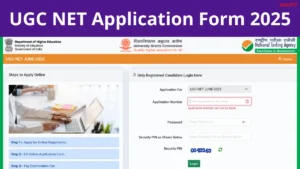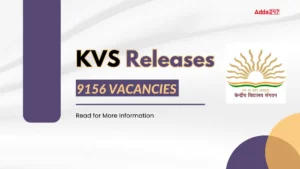Table of Contents
Teaching has always been considered one of the noblest and respectable professions in India. The fact that a teacher is able to influence numerous young minds in their lifetime, increases the responsibility exponentially. Thus, the teacher’s recruitment process in India is designed and implemented to select the best teaching candidates for the job. Potential, eligible and interested Candidates can easily prepare for the Central Teachers Eligibility Test conducted by the CBSE at home. The CTET is a national level examination conducted to test the eligibility of a teaching candidate for the various government teaching jobs across the country.
List of Courses to Become Government Teacher in India
- Bachelor of Education (B.Ed)
- Pre-School Teacher Education Program
- Nursery Teacher Education Program
- Elementary Teacher Education Program
- Diploma in Education (D.Ed.)
- Bachelor of Elementary Education (B.EI.Ed.)
- Physical Education Program (C.P.Ed.)
- Bachelor of Physical Education (B.P.Ed.) Program
- Bachelor of Education (B.Ed) (Open and Distance Learning System)
- Master of Education Program (M.Ed.)
- Master of Education Program (M.Ed.) (Part-Time)
- Master of Education Program (M.Ed.) (Open and Distance Education Learning System)
Entrance Exams for Becoming a Teacher in India
CTET
Central Teacher Eligibility Test or CTET is an entrance exam for recruiting teachers in government schools in different states in India. It is a national-level eligibility test conducted by the CBSE to determine the candidate’s skills and aptitude for teaching in Centrally-run government schools. It is conducted twice a year. After successful completion of the exam, candidates receive certificates that help them apply for various government teaching jobs.
TET
The teacher Eligibility Test (TET) is an eligibility test by different states in India. Most of the states conduct TET once a year and the candidates qualifying for the examinations become eligible to apply for jobs in the respective states.
Some Popular Governments Schools
Following are the government schools and organizations that regularly announce job vacancies. Candidates have to clear the entrance exams conducted by the respective schools and organizations.
- Kendriya Vidyalaya Sangathan
- Navodaya Vidyalaya Samiti
- Jawahar Navodaya Vidyalaya
- Delhi Subordinate Services Selection Board
How to Prepare for Teaching Exams at Home?
Competition for these jobs is tough and the clock has started ticking. You need to have a well-planned strategy for preparation. Here are a few general suggestions that will help you achieve this.
1. Understand the exam pattern and Syllabus
Candidates should go through the exam pattern and syllabus of the examination they are preparing for at home. A careful reading of the exam pattern and the syllabus gives the candidates a clear understanding of the task at hand. Candidates can easily figure out their weaknesses and strengths based on the subjects, topics, and subtopics. Based on the understanding of the syllabus, segregate the topics as per the difficulty; and focus on the basic concepts.
2. Prepare a Comprehensive Routine for Study
Design a goal-based strategy that will help you cover the entire syllabus and leave time for revision. Time management is the key to success. create a routine dedicating time for all the topics on an hourly basis. You can assign more time to your weak topics, and tick them off your goal list as you master them. This will boost your confidence in the preparation tactics. This way you will always be up to date with your preparations. Ideally, candidates are advised to create a routine for at least 7 to 8 hours every day.
3. Make Crisp Study Notes
Gather proper study material and make subject-wise short notes. Choosing the right books with comprehensive study material and easy-to-understand language will help you get a grip on the syllabus. Don’t depend on one set of books. Refer to multiple sources of information and study material and create reference notes based on your study. As a little effort goes a long way, these crisp pointers will help you in quickly revise the entire syllabus.
4. Practice Mock Tests & Previous Year Question Papers
Once you have completed the study of the syllabus, start solving mock tests and previous years’ papers. Solving the mock tests and sample papers is of utmost importance for enhancing your accuracy as well as speed. After solving a test, its analysis will help you in shortlisting your weak areas. You can then, pay more attention to them while studying. Revise every topic, subtopic, and concept as many times as possible.
5. Read Newspapers to Stay Updated
Candidates are advised to read newspapers and current affairs magazines to keep themselves updated. The candidates must have a clear idea of what is happening in and around the world. Politics, national and international events, and sports are some of the topics the candidates should have a good grip on. This practice helps to enhance the knowledge base of the candidates.
6. Stay Positive
However effective exam preparation strategy you follow, will not yield the desired results without a positive attitude. You must believe in your efforts and do not fret over the outcome. Focus on your health, because a healthy body hosts a healthy mind. Hence, you must eat well, stay hydrated, and get a good night’s sleep, so that you can concentrate better on achieving your goal.
Do’s and Don’ts for the Day of Examination:
● Reach the examination center at least half an hour before the reporting time.
● Begin with solving the questions that you are sure about.
● Because there is no negative marking, do not leave any blanks in the answer sheet.
● Attempt all the questions, each mark is an added advantage.
● Mark the answers in the OMR sheet carefully.
● If you come across a particularly difficult question, avoid spending too much time on it.
● Try to attempt all the questions, but keep an eye on the time also.
● Don’t take any stress. Try to remain calm during the examination. tress. Try to remain calm during the examination.



 UGC NET Application Form 2025 Starts for...
UGC NET Application Form 2025 Starts for...
 Can DELED Qualified Candidates Apply for...
Can DELED Qualified Candidates Apply for...
 KVS Recruitment 2025 Out, Check Kendriya...
KVS Recruitment 2025 Out, Check Kendriya...














